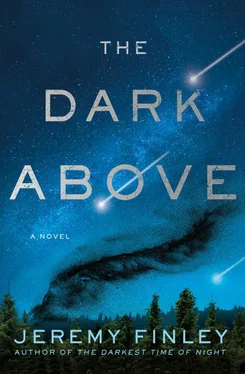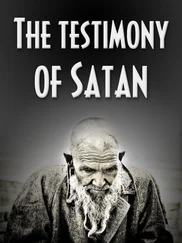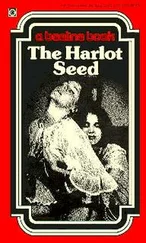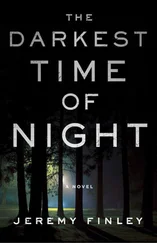Jeremy Finley
THE DARK ABOVE
For Rebecca,
Who can summon the storm,
but prefers to command the sun.
I am deeply indebted to Paul Stevens at the Donald Maass Literary Agency, for his calm and steady guidance. To the entire staff at St. Martin’s Press, especially my brilliant editor, Peter Wolverton, who knew he wanted a sequel from the very beginning. My additional thanks to the talented Jennifer Donovan, Joe Brosnan, Sarah Bonamino, Hannah O’Grady, Sophia Dembling, Norma Hoffman, and Niko Eickelbeck.
To Lauren Szurgot with the William Morris Agency, who shares the vision.
I cannot express my gratitude enough to the bookstore owners and staff, the book clubs, and my family and friends who embraced these novels. And to the writers who’ve offered support along the way, especially Michael Koryta, J. T. Ellison, and Hank Phillippi Ryan, I am forever thankful.
To Kathleen and Steve Morris, family who are our closest friends. Thank you for bringing Peter and Nick into the world so I could write about redheads.
To Michael Morris, for the fact-checking.
To Todd Wrubel, for helping to develop a character that proves there is good even in the most notorious of troublemakers.
To Todd Doughty, an extraordinary publicist and an even better friend.
To my brother Jason Finley, for your edits and extensive knowledge of aliens.
To my daughters Eve and Charlotte. You make me proud to be your father.
And to my wife, Rebecca, whose grace, kindness, grit, beauty, intelligence, and love proves in the story of my life, the hero is a woman.
The monster in the mountain was awake.
Even outside, under stars drowning in a dark North Dakota sky, the little girl felt it stir. She waited to see if it would come for her; steal through the dark and drag her back.
Standing in the dust from her escape, she felt it move within the stone and become still.
A mournful hooting interrupted the silence. The girl looked away from the towering stone to stare across the vast emptiness illuminated by a shy moon peeking out just enough to reveal land formations in the distance, thick and blocky. She wanted to run to them, and whatever lay beyond, and never stop.
Instead, she slowly turned back to the mountain, knowing what she left behind. It hurt so badly, she felt she might die on the spot.
But she was only nine years old, and she wanted to live.
She’d almost forgotten about the outside world, having been asleep inside the mountain for so long. But then a man had appeared in her dark dreams and reminded her that there was, in fact, a real world to which she belonged. He looked as frightened as she.
She wanted to reach out to him and never let go, as she once had the small velvet bag containing her meager possessions. There hadn’t been much in that bag, just a plastic ring, a marble, and a top that blurred the color of the rainbow when it spun. She’d loved that bag, even slept with it, holding it close to her chest, until the night came that never ended, and the monster emerged from the black.
The girl had no idea how she’d escaped, where to go, or what to do. She thought of the man, with his kind face and thick hair that swirled in waves. He’d seen her, too; she knew it. He’d seen the awful things that had happened in her dreams. He’d shown her she wasn’t alone. All she knew was that after he’d appeared, she found a way out.
She had to find him, even if it meant leaving behind what mattered to her most in the world.
“I promise,” she whispered.
Feeling the aching breach in her heart, she turned from the mountain and began to walk.
Her Birkenstocks, with straps nearly identical in color to her turquoise bracelet, scooted along the cobblestones. Every third paver or so, she would eye a raised edge or a bit of moss, both of which she knew would surely result in a terrible slip and a broken neck.
“Would it kill you to just put in a concrete slab?” Roxy grumbled.
She knew the answer. Lynn would sooner place one of those cowboy silhouettes tilting his hat before she would dig up her carefully plotted cobblestone path.
The entire garden lacked practicality, and it expanded every spring. It was way too much for a widow in her late seventies, Roxy liked to remind her. Still, Lynn had recently planted a row of delphiniums, despite their dislike for hot summers.
“Those are going to die, you know,” Roxy had warned her last month, carrying over a metal watering can.
“We will see,” Lynn had responded, tossing a scoopful of Miracle-Gro into the water. “And if you insist on scuffling when you walk because you’re afraid you’re going to fall and a break a hip, let me remind you that you walked the Tomato Art Fest 5K last year and came in first in the sixty-and-older division.”
Roxy had made it a point to skid her shoes loudly each time she walked past Lynn since she’d made that comment. This morning was no different, just in case Lynn was in the kitchen and could hear her approaching. She passed the delphiniums with their stately white blooms reaching for the sun. They shouldn’t flourish like this here. They should be wilting. Their garden club had included them on their “DO NOT PLANT” list because of their preference for cool climates.
As always, Lynn Roseworth had proved them all wrong.
Roxy reached the porch, wincing on the stairs. The pain was bad this morning. It was bad every morning. Women don’t get beaten in their mid-sixties and then decide to start taking up tennis. But the pain lessened as the day went on, and she wasn’t going to start taking those opioids that doctors seemed to give out like Reese’s cups at Halloween.
So I have some pain, big deal. And a big, ugly scar to go with it. It’s not like I’m entering Miss Tennessee this year.
“Lynn!” she called out as she entered the kitchen. “’I’ve got it! The Happy Hookers! Get it? I know Gladyce will object, but she can pull that walker of hers out of her ass. We can get bowling jackets with the name on the back and wear them in Gatlinburg. We’ll be the stars of the fall rug-hooking conference.”
Roxy went straight for the coffeepot, delighted that it was still warm. “Did you make the reservation for it yet? I prefer a cabin with a pool table. Hey, where are you hiding the sugar these days? I’m not using artificial sweeteners anymore. They say it causes dementia, and I can’t afford to lose any brain cells.”
She found the sugar stashed on the lazy Susan in the corner cabinet, mumbling that it was the least accessible place in the kitchen. Lynn had kept it in a sizeable wooden canister for decades, ready for her to dip in to at a moment’s notice should her husband come home cranky from DC. The smell of a freshly baked apple pie was always the best way to detox from the Beltway, Tom always said with a wink.
Roxy gently placed the small glass container on the counter, her hands trembling a bit. Grief was sneaky like that. Comes up like a thief, waiting for you to feel comfortable, even happy, then jabs in the knife.
Tom, she thought, closing her eyes. You stubborn, set-in-your-ways politician. I miss you.
You wouldn’t know it, given how we bickered. But I was part of the package when you married my best friend. You didn’t like that I knew more about cigars than you did, and I didn’t like your unwavering stance on the death penalty. We were supposed to argue for many, many years to come. You weren’t supposed to die at seventy-eight.
Читать дальше













